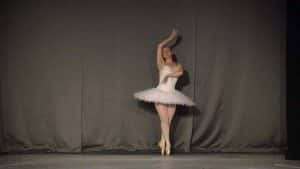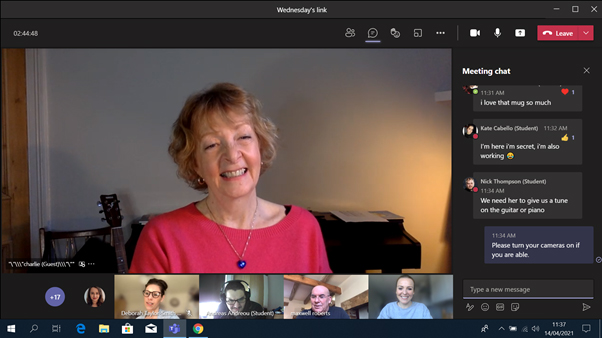
SINCE the government suggested that those who work within the arts and creative industries should simply retrain to keep working during Covid, there has been uproar amongst the dancing community…
…not least because a government advert to convey the message featured a ballerina.
Since SR News is based in the Faculty of Arts & Creative Industries at University of Sunderland, we’re exploring the controversy through the eyes of those directly involved in the sector here in the North East.
Today, Sam Boal speaks to Emily Wallace, owner of Sunderland Ballet, to see how the recently-scrapped advert has affected the industry.

IT’S a hard time for people in a number of different sectors due to Covid, yet many dancers feel singled out after the government released its advert suggesting that ‘Fatima’ (the ballerina featured in it) should work in a more ‘conventional’ sector, such as cyber.
Emily Wallace, 45, is the owner of Sunderland Ballet dance school, and started dancing when she was a little girl.
“This advert will make aspiring dancers feel like the profession is under-valued, which is quite a difficult message to deal with, because you have to train very hard and at enormous expense to be a dancer.”
She said: “It showed how little the Government understand the sector: you can’t be a ballet dancer one day and then be in cyber-security the next, because the ballet dancer inside of you will not go away.
“Frankly, I laughed when I first saw the advert. I just thought ‘How ridiculous’. People who try to make a living in the dance world don’t do it for money, because so often it is a struggle. It is a vocation and a passion. It isn’t something you can put aside one day to do another job the next day.
“I was fairly sure that I wasn’t going to entertain the idea of retraining. The reason for that is that it has taken me 10 years to build my school up, but frankly that’s nothing in comparison to the amount of training that I have done over many years. You’re probably looking at about 35 years, to be honest.
“Because we use our bodies, we have to continually train. I felt that I had worked too hard and had come too far, and my priority at the moment is to keep my school alive and try and get through this in one piece.”

“I’ve had to change everything that I’ve done” – Emily, straight after teaching a class over Zoom back in July.
Mrs Wallace is concerned about the effect the advert might have on hopeful dancers, as it sends them and their parents a message which suggests that dancing is not a viable career path.
She explained: “This advert will make aspiring dancers feel like the profession is under-valued, which is quite a difficult message to deal with, because you have to train very hard and at enormous expense to be a dancer.
“The idea that you might pack it all in and do some other job that has nothing to do with it might suggest that it isn’t very prestigious and nobody values it.
“I don’t think this will put aspiring dancers and young people off entering the sector. I think the concern is around parents, teachers and the wider industry.
“When you have a passion for it, the advert isn’t going to put someone off who is young and is aspiring to be a professional. They probably think ‘I’m going for it anyway’.
“The advert might put parents off allowing their child to pursue a future in dancing, they might be wondering whether it’s the right time, whether they should have a back-up plan or go to university instead.”
What did you think of the government-backed advert? Let us know on our Twitter page.



